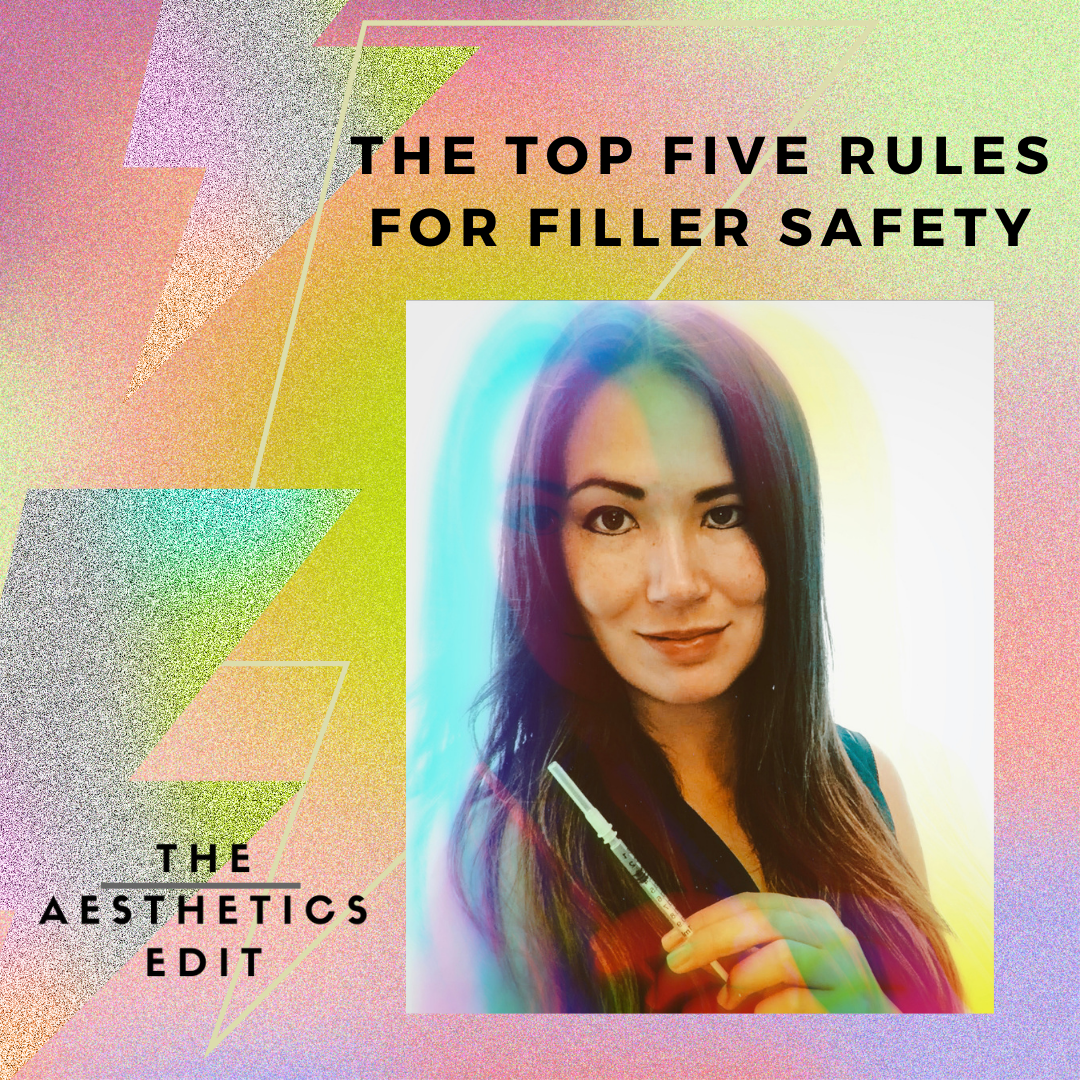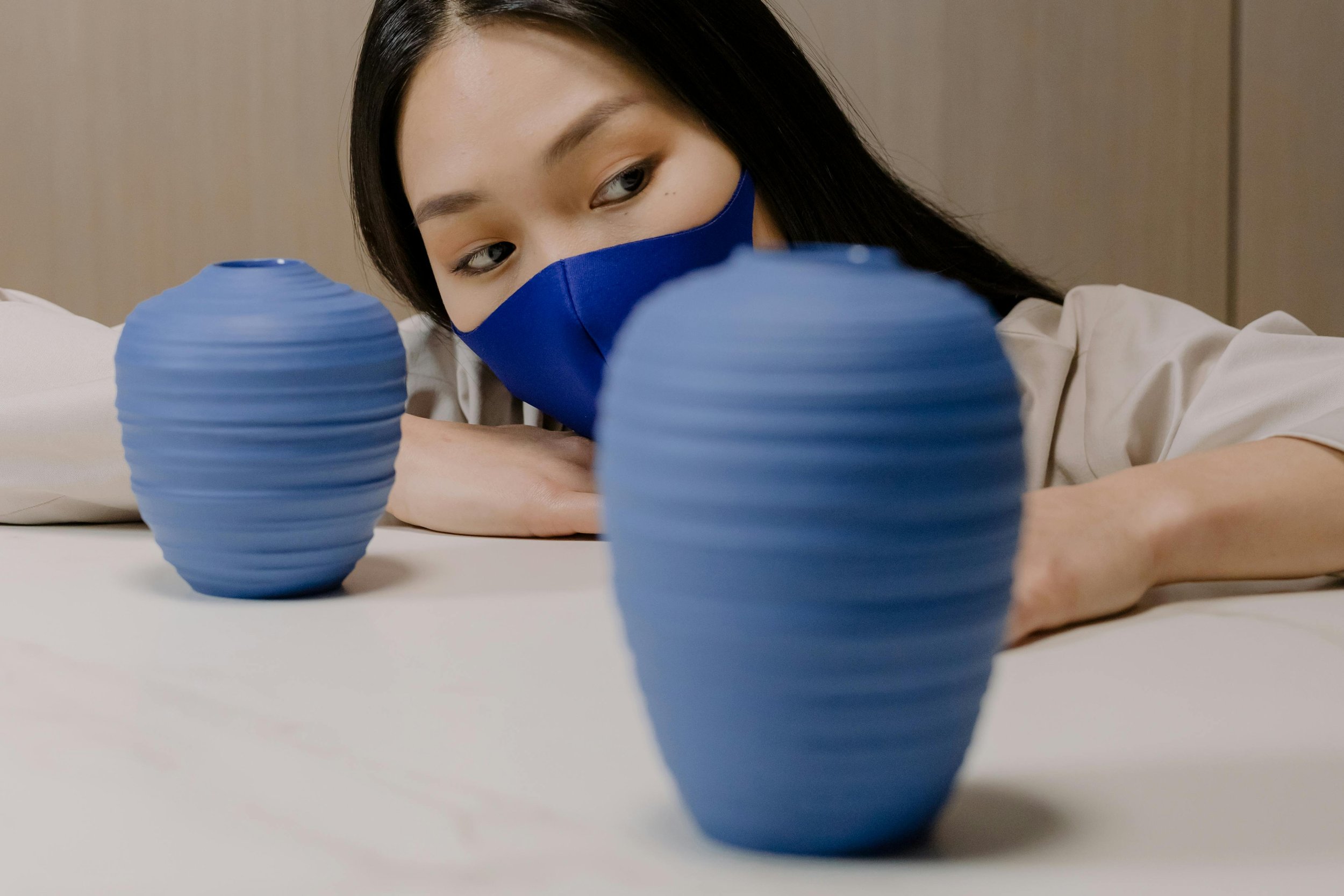The Top Five Rules for Filler Safety
Thinking of getting fillers? Not so fast! While this is a wonderful treatment in medical hands, there are many ways it could go wrong. Here, Dr Emmaline shares her Top Five Tips for Filler Safety.
This is a round-up article and summary of some of the information found in our main article about the Basics of Dermal Filler.
𝚁𝚞𝚕𝚎 #𝟷. 𝙼𝚎𝚍𝚒𝚌𝚊𝚕 𝚙𝚛𝚘𝚏𝚎𝚜𝚜𝚒𝚘𝚗𝚊𝚕𝚜 𝚘𝚗𝚕𝚢!
It goes without saying and I have written extensively about this issue, so I will leave it there. However, I will highlight a recent case of a beautician masquerading as a doctor on social media who was reported by multiple people. Sadly, even if someone states they are medical, look them up on the register!
𝚁𝚞𝚕𝚎 #𝟸. 𝙷𝚒𝚐𝚑 𝚚𝚞𝚊𝚕𝚒𝚝𝚢 𝚏𝚒𝚕𝚕𝚎𝚛𝚜 𝚘𝚗𝚕𝚢!
There are a few brands that have excellent clinical data behind them, and for this reason they are preferred by most medical professionals. The list in this post is not exhaustive and is in no particular order, but it is good to have some familiarity with the highest quality brands out there. What about other fillers you find floating around? If you go to a medical professional they will have no problem explaining their filler choice and discussing the safety aspects around it. Many low quality fillers will use having a CE mark as a credential, but a 𝗖𝗘 𝗺𝗮𝗿𝗸 𝗶𝘀 𝗮𝗯𝗼𝘂𝘁 𝘁𝗵𝗲 𝗺𝗮𝗻𝘂𝗳𝗮𝗰𝘁𝘂𝗿𝗶𝗻𝗴 𝗽𝗿𝗼𝗰𝗲𝘀𝘀 𝗮𝗻𝗱 𝗵𝗮𝘀 𝗻𝗼𝘁𝗵𝗶𝗻𝗴 𝘁𝗼 𝗱𝗼 𝘄𝗶𝘁𝗵 𝗲𝗳𝗳𝗶𝗰𝗮𝗰𝘆 𝗼𝗿 𝗾𝘂𝗮𝗹𝗶𝘁𝘆!
𝚁𝚞𝚕𝚎 #𝟹. 𝙽𝚎𝚟𝚎𝚛 𝚂𝚑𝚊𝚛𝚎 𝚊 𝚂𝚢𝚛𝚒𝚗𝚐𝚎!
This is an absolute no-no. Your health and safety should never be compromised for the sake of a good “bargain.” Anyone who offers to let you share a syringe with a friend or another patient is putting you at risk. It doesn’t matter if they change the needle (there’s still cross contamination) - that syringe of filler is a sterile product and is for use of one person only.
𝚁𝚞𝚕𝚎 #𝟺. 𝙲𝚑𝚘𝚘𝚜𝚎 𝚊𝚗 𝙷𝚢𝚊𝚕𝚞𝚛𝚘𝚗𝚒𝚌 𝙰𝚌𝚒𝚍 𝙵𝚒𝚕𝚕𝚎𝚛!
Dermal fillers are composed of soft, clear gel made from a sugar found naturally in your skin called hyaluronic acid (HA). HA is naturally degraded by our body’s own enzymes, which means that these fillers are not permanent and are also much safer to inject as they can be dissolved in case of an emergency! Other types of filler are higher risk due to the lack of an ability to dissolve.
𝚁𝚞𝚕𝚎 #𝟻. 𝚁𝚒𝚐𝚑𝚝 𝚙𝚛𝚘𝚍𝚞𝚌𝚝, 𝚛𝚒𝚐𝚑𝚝 𝚙𝚕𝚊𝚌𝚎!
While this technical aspect is more important for medical injectors to understand, it is worth knowing a little bit about the science behind the properties of fillers. G-prime is one of the main characteristics of filler, a rheological property that basically describes how elastic the filler is and how well it keeps its shape. Higher G-primes are generally “harder” are will be used in areas that need more sculpting like the cheeks or chin, whereas lower G-primes are “softer” or more liquid and might be used in areas like the tear troughs. Your injector should be able to explain exactly why they are using what, where.

















Galderma has unveiled Relfydess™ (RelabotulinumtoxinA), the world’s first ready-to-use liquid neuromodulator developed with proprietary PEARL™ Technology. This groundbreaking product has recently received approval for use in Europe. So what is it, and what sets it apart from the other toxins?.